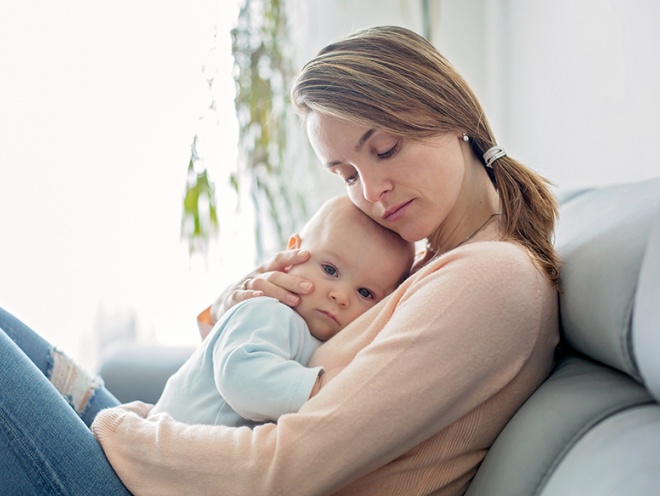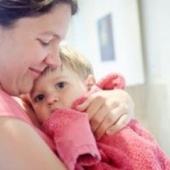Here we discuss how to look after your child with a sickness bug at home and stop the spread, and when to seek urgent medical advice.
You might be wondering when you should worry about your little one having diarrhoea and vomiting and what might be causing it. In fact, the most common causes of diarrhoea and vomiting are stomach bugs, norovirus, and food poisoning (NHS, 2020).
Read on to find out how to treat your child at home and when to get medical advice.
Caring for a baby or child with diarrhoea and vomiting at home
If your child has diarrhoea and vomiting, keep them at home and make sure they stay hydrated and get plenty of rest (NHS, 2020). Keeping them home from nursery and baby groups until they are better also means they don’t spread the infection (NHS, 2020).
What treatment can I give my baby or child for diarrhoea and vomiting?
Anti-diarrhoeal medications are not suitable for babies or children under 12 years old.
For children who are five years and older, phone or go online to contact your GP or pharmacist, who may recommend giving them some oral rehydration solution (NHS, 2020). This helps replace the water and salts lost through vomiting and diarrhoea.
What should a baby or child with diarrhoea and vomiting eat and drink?
Carry on breastfeeding or giving your baby their usual formula milk feeds, which they may want more often than usual (NHS, 2020).
Formula-fed babies can also have small sips of water between feeds (NHS, 2020). Keep giving them formula at the usual strength – never water it down (NHS, 2020).
Children over one year old can have other drinks, such as full-fat cows' milk. Avoid fruit juice and fizzy drinks as these can make diarrhoea worse. If your child is on solid foods, offer them food as usual if they seem to want it, plus sips of water (NHS, 2020).
As soon as they feel able to eat again, they can return to their normal diet.
When to get medical advice
Get advice from 111 if your child:
- is younger than 12 months old and you’re worried about them
- has stopped taking fluids or can’t keep them down
- who's under five years old is showing signs of dehydration, e.g. fewer wet nappies
- has been vomiting for more than two days, or has had diarrhoea for over seven days
- is over five years old and is still dehydrated despite consuming oral rehydration sachets
- has blood in their poo.
(NHS, 2020)
Call 999 or go to the emergency department if your child has:
- blood in their vomit or it looks like coffee grounds
- vomit that's green/yellow-green
- possibly swallowed something toxic
- a stiff neck and pain when they look at bright lights
- a sudden, severe headache or stomach ache.
(NHS, 2020)
Dehydration can be very serious for children under five years old and may need emergency treatment (NHS, 2019). Signs of dehydration could be:
- feeling thirsty and tired
- weeing less, or having wee that is dark and smells strong
- having dry lips, mouth and eyes.
(NHS, 2019)
How to stop diarrhoea and vomiting spreading
Make sure everyone in the family washes and dries their hands frequently, using soap and water (NHS, 2020). Use a hot wash to clean any clothing or bedding that has poo or vomit on it. Clean toilet seats and other frequently touched surfaces every day (NHS, 2020).
Anyone who is sick should not prepare food, or share towels or utensils. They also shouldn't swim in public swimming pools for two weeks after their diarrhoea and vomiting has stopped (NHS, 2020).
This page was last reviewed in July 2022.
Further information
Our support line offers practical and emotional support with feeding your baby and general enquiries for parents, members and volunteers: 0300 330 0700.
You might find attending one of our NCT New Baby courses helpful as they give you the opportunity to explore different approaches to important parenting issues with a qualified group leader and other new parents in your area.
Make friends with other parents-to-be and new parents in your local area for support and friendship by seeing what NCT activities are happening nearby.
NHS Choices has useful information about diarrhoea and vomiting in children and dehydration in under 5s.
NHS. (2019) Dehydration. Available at: https://www.nhs.uk/conditions/dehydration/ [Accessed 21st July 2022]
NHS. (2020) Diarrhoea and vomiting. Available at: https://www.nhs.uk/conditions/diarrhoea-and-vomiting/#child-treatment [… 21st July 2022]






